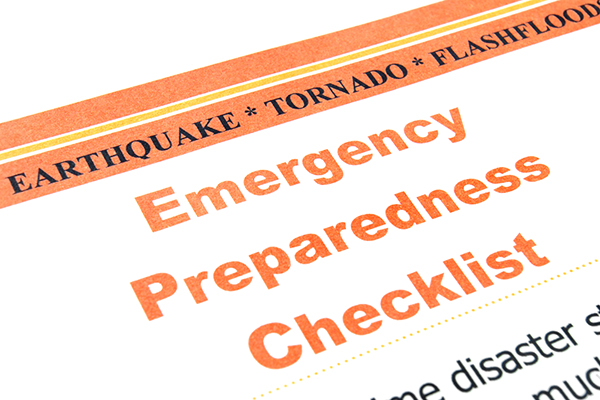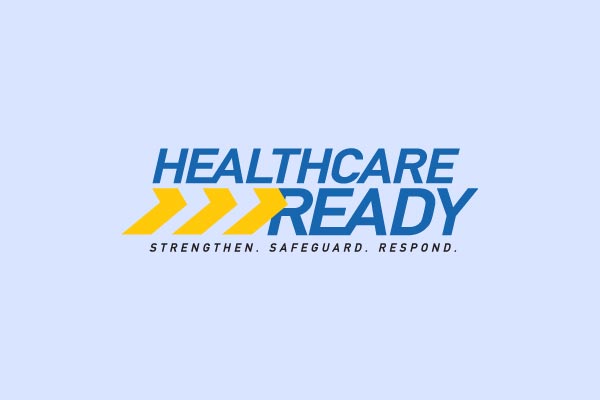Disaster Tip Sheet: Winter Storms
Preparing Your Health for Winter Storms
Fill prescriptions on time or ahead of time, if you can:
- Call your pharmacist to ask if your prescriptions can be filled early
- View Healthcare Ready’s blog on the refill-too-soon laws by state.
- Know the signs of hypothermia and frostbite
- Frostbite: Numbness, pale/gray/yellowing skin and firm/waxy skin
- Hypothermia: Shivering, confusion/memory problems, fatigue, trouble speaking, or if your temperature drops below 95° F
Try to keep non-perishable food, water, and can openers on hand
- Go for canned meats, fruits and vegetables that are ready to eat, and can be used in a renal diet
- Protein bars, cereal and granola, and dried fruit are great snacks to have
- If possible, try to keep some food, water, and can openers in your “go-bag”
- Keep a list of your local healthcare facilities, with addresses, phone numbers, and emails/websites
- Hospitals/ERs
- Urgent care clinics
- Pharmacies
- Consider these facilities:
- Ancillary care:
- Dialysis Centers, Cancer Treatment Centers
Plan for any chronic conditions you may have
- Diabetes: Talk to your pharmacist about keeping a supply of insulin on hand – Try to refrain from eating sugar and other carbohydrates
- Kidney disease: Make sure you have access to dialysis treatment and use the renal diet
- Cardiovascular disease & hypertension: Try to refrain from high-salt and fatty food and aim for 30 minutes of activity a day to manage your blood pressure
- Pulmonary disease: Work with your supplier to understand options for keeping resupplies of oxygen with you
- Disability: Develop alternative transportation plans and identify a trusted caretaker if necessary
- Aging: Post emergency numbers near every house phone and cellular phone
- Asthma: Have a plan to ensure you have a supply of your asthma medications and supplies
- Cancer: If you have a cancer survivorship care plan, keep a copy handy and take steps to lower your risk for infections
- Keep a list of helpful hotlines
- Healthcare Ready: 1-866-247-2694
- FEMA Disaster Assistance Helpline: 1-800-621-3362
- Disaster Distress Helpline: 1-800-985-5990 (or text “TalkWithUS” to 66746)
- Kidney Community Emergency Response (KCER): 1-866-901-3773Red Cross: 1-800-733-2767
- American Diabetes Association: 1-800-342-2283
- American Heart Association: 1-800-242-8721
- American Association of People with Disabilities: 1-800-840-8844
- American Stroke Association: 1-888-478-7653
- Make sure you know your prescription medication and health information – use Rx on the Run to keep a list of your prescriptions
- Rx on the Run is a personalized wallet-sized card that lists your prescriptions with the latest dosage and instructions
- Visit HealthcareReady.org/Rx-on-the-Run to fill yours out!
- Use RxOpen.org to find open pharmacies near you.
Protecting Your Health During a Winter Storm
If you believe you have frostbite or hypothermia, stay in a warm room
- Frostbite:
- Soak in warm water and use body heat to warm yourself
- Do not massage the skin or use heating pads
- Stay indoors and avoid driving, if possible
- Wear thick clothing and multiple layers if you must go outside
- If you are driving and get trapped in your car, stay inside the car
- Do not run gas-powered generators, grills, or heaters indoors (Gas build up can be lethal!)
- Check with your health insurance provider for emergency support resources and hotlines
- Start by calling the number on the back of your insurance card for assistance
- If you don’t have insurance, call 2-1-1 and ask about local services that may be able to help
- If there is a disaster declaration, you can also try to apply for FEMA Disaster Assistance for financial support by calling 800-621-3362 or visiting DisasterAssistance.gov
Other Disaster Tip Sheets

Download our Winter Storm Tip Sheet here:
This Tip Sheet was created thanks to the generous support of Eli Lilly







